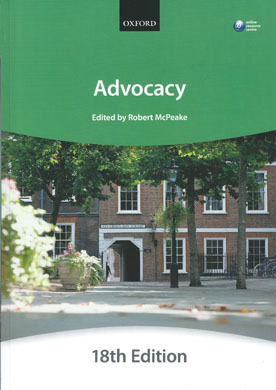
Written by experienced advocates and advocacy trainers, Advocacy provides an excellent introduction to the skills and techniques required to be an advocate.
Coverage includes guidance on making opening and closing speeches; planning and delivering examination-in-chief and cross-examination; questioning witnesses; as well as examples of specific questioning techniques which may be employed in practice.
Additionally, authors highlight the ethical boundaries and rules within which an advocate must work. Advocacy covers both criminal and civil court proceedings, and includes a number of how-to-do-it guides illustrating how particular applications should be made when in practice.